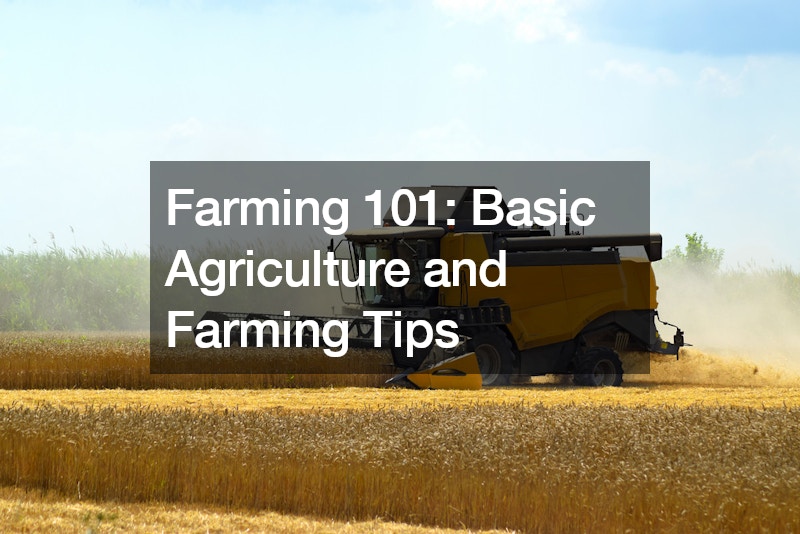
Welcome to our comprehensive guide on farming 101. In this article, we will cover a range of topics related to farming and agriculture, including mill liners, pole barn commercial buildings, stock trailers, skid steer attachments, propane tanks, heavy equipment, septic pumping, metal building contractors, grain bin services, and local pest control. Whether you’re a seasoned farmer looking to expand your knowledge or someone just starting out in the world of agriculture, this guide is designed to provide valuable insights and information to help you succeed in your farming endeavors. The goal of this article is to get your farm running smoothly. So, grab a cup of coffee, sit back, and let’s dive into the wonderful world of farming!
Mill Liner
When it comes to mill liners, choosing the right material is crucial for optimal performance. Mill liners are designed to protect the mill shell from wear and tear, ensuring the efficiency and longevity of the grinding process. Whether you’re using a ball mill, rod mill, or SAG mill, investing in high-quality mill liners can improve overall productivity on the farm.
Mill liners are crucial components in grinding mills, serving as protective shields for mill shells and enhancing the efficiency of the grinding process. They not only safeguard the mill structure from wear and tear but also optimize the milling operation by ensuring proper ore trajectory and reducing energy consumption. Additionally, mill liners impact the milling media, improving grinding performance and product quality while minimizing downtime for maintenance. Their significance lies in prolonging the lifespan of mill equipment, reducing operational costs, and maintaining consistent throughput.
From rubber to steel to composite materials, there are various options available for mill liners. By selecting the appropriate liner for your specific milling application, you can enhance the efficiency of your operations and reduce maintenance costs in the long run. It’s essential to regularly inspect and replace mill liners as needed to prevent downtime and maximize output on the farm. Mill liners play a critical role in the farm’s milling operations, contributing to overall productivity and profitability. By understanding the importance of mill liners and choosing the right materials, farmers can optimize their grinding processes and achieve superior results.
Pole Barns

Pole barns are versatile structures that serve various purposes on the farm, including storage, housing livestock, and sheltering equipment. These durable and cost-effective buildings are commonly used in agriculture due to their simplicity and efficiency in construction. Pole barn commercial buildings provide ample space for farming activities while maintaining a comfortable environment for animals and workers.
With customizable designs and options for insulation, ventilation, and lighting, pole barns can be tailored to meet specific farming needs and preferences. Their open-span interiors allow for easy maneuvering of equipment and machinery, enhancing workflow efficiency on the farm. Whether you need a barn for hay storage, a milking parlor, or a workshop, pole barns offer practical solutions for modern farming operations. Pole barn commercial buildings are essential components of a successful farm, offering versatility, durability, and functionality. By investing in a well-designed pole barn, farmers can create a productive and comfortable environment that supports their agricultural activities year-round.
Trailers

Stock trailers are indispensable assets for transporting livestock, equipment, and supplies on the farm. Whether you’re moving cattle to market or hauling feed to the barn, having a reliable stock trailer can streamline your operations and ensure the safety of your animals. Stock trailers come in various sizes and configurations to accommodate different livestock species and quantities.
When selecting a stock trailer, consider factors such as size, weight capacity, and trailer features like partitions, ramps, and ventilation systems. Proper maintenance and regular inspections are essential to ensure the longevity and safety of your stock trailer. By adhering to transport regulations and best practices, farmers can minimize stress on animals during transit and maximize efficiency in their farming operations. Stock trailers are valuable assets for farmers that facilitate the transportation of livestock and goods on the farm. By investing in a high-quality trailer and following proper care and usage guidelines, farmers can enhance the productivity and welfare of their operations.
Skid Steer Attachments
Skid steer attachments suppliers offer a range of tools and accessories that enhance the versatility and efficiency of skid steer loaders on the farm. From buckets and forks to grapples and augers, skid steer attachments facilitate various tasks such as digging, lifting, grading, and material handling. Investing in the right attachments can expand the capabilities of your skid steer loader and streamline your farming operations.
When choosing skid steer attachments, consider the nature of your work, soil conditions, and equipment compatibility to ensure optimal performance. Proper maintenance and usage of attachments are essential to prevent wear and tear and prolong their service life. Skid steer attachments suppliers can provide expert guidance on selecting the right tools for your specific farming needs and budget. Skid steer attachments are valuable assets for farmers that enhance the efficiency and versatility of skid steer loaders on the farm. By equipping your machine with the right attachments and following best practices in their use and maintenance, you can maximize productivity and achieve superior results in your farming activities.
Propane
Propane tanks are commonly used in agriculture for heating, drying, and powering equipment on the farm. Propane is a clean-burning and cost-effective fuel source that provides reliable energy for various farming applications. Whether you need propane for heating greenhouses, drying crops, or running irrigation systems, having a properly sized and maintained propane tank is essential for uninterrupted operations.
When installing a propane tank on the farm, work with reputable suppliers who can assess your energy needs and recommend the right tank size and placement. Regular inspections and maintenance of propane tanks are crucial to ensure safety and compliance with regulations. By prioritizing propane safety and efficiency, farmers can optimize their fuel usage and minimize downtime during critical farming seasons. Propane is a versatile and reliable energy source for various farming activities, offering convenience and cost savings to farmers. By investing in high-quality propane tanks and following best practices in their installation and maintenance, farmers can benefit from efficient and sustainable energy solutions on the farm.
Equipment Rentals

Heavy equipment rentals are convenient options for farmers looking to temporarily expand their machinery fleet or complete specific tasks on the farm. Whether you need a backhoe for digging trenches, a skid steer loader for snow removal, or a tractor for planting crops, equipment rentals provide flexibility and cost savings. Renting heavy equipment can help farmers avoid the upfront costs of purchasing machinery and reduce maintenance and storage expenses.
When renting heavy equipment, ensure you choose reputable suppliers with well-maintained machines and transparent rental terms. Proper operator training and adherence to safety protocols are essential to prevent accidents and damage to equipment. By leveraging equipment rentals strategically, farmers can access the latest machinery and technology to improve efficiency and productivity on the farm. Heavy equipment rentals offer farmers a practical and economical solution for accessing specialized machinery and completing tasks efficiently on the farm. By partnering with reliable rental companies and prioritizing safety and training, farmers can optimize their equipment usage and achieve optimal results in their agricultural operations.
Septic Services
Septic pumping is a crucial aspect of maintaining a functional septic system on the farm, ensuring proper waste disposal and environmental protection. Regular septic pumping prevents clogs, backups, and contamination of soil and water sources, safeguarding the health and safety of livestock, crops, and humans. By scheduling routine septic services with licensed professionals, farmers can prevent costly repairs and mitigate the risk of septic system failures.
In addition to septic pumping, septic services may include inspections, repairs, and installations to optimize the performance and longevity of the septic system. Proper waste management practices, such as limiting water usage and avoiding flushing harmful substances, can also contribute to the efficiency and durability of septic systems. By prioritizing septic maintenance, farmers can preserve the integrity of their operations and protect the environment for future generations. Septic services play a vital role in maintaining a healthy and sustainable waste management system on the farm. By investing in regular septic pumping and following best practices in septic system care, farmers can ensure the long-term functionality and environmental responsibility of their agricultural operations.
Metal Buildings
Metal building contractors specialize in designing, fabricating, and constructing durable and versatile buildings for agricultural use. Metal buildings offer strength, durability, and cost-effectiveness compared to traditional construction materials like wood and brick. Whether you need a barn, storage facility, or workshop, metal building contractors can customize structures to meet your farming needs and preferences.
With options for insulation, ventilation, and energy-efficient features, metal buildings provide comfortable and functional spaces for livestock housing, machinery storage, and other farming activities. Their quick assembly and low maintenance requirements make metal buildings ideal for time-sensitive projects and long-term cost savings. By working with experienced metal building contractors, farmers can create efficient and durable structures that enhance their operations and property value. Metal building contractors offer farmers practical and durable solutions for constructing versatile and sustainable buildings on the farm. By opting for metal structures and leveraging the expertise of contractors, farmers can benefit from cost savings, efficiency, and longevity in their agricultural infrastructure.
Grain Bins
Grain bin services provide storage solutions for harvested crops, protecting grains from pests, moisture, and spoilage on the farm. Grain bins come in various sizes and designs to accommodate different crop quantities and storage requirements. Proper ventilation, temperature control, and monitoring are essential to preserving grain quality and maximizing its market value.
When investing in grain bins, consider factors such as material quality, capacity, and ease of access for loading and unloading operations. Regular inspections and maintenance of grain bins are critical to prevent structural failures and grain contamination. By following best practices in grain bin management and storage, farmers can safeguard their harvests and ensure a stable supply of grains for sale or consumption. Grain bin services offer farmers efficient and reliable solutions for storing and preserving harvested crops on the farm. By prioritizing proper grain bin maintenance and management, farmers can protect their investments and optimize the quality and value of their grains throughout the storage period.
Pest Control

Local pest control services play a vital role in managing pest infestations and protecting crops, livestock, and property on the farm. Pest control specialists use environmentally friendly methods and integrated pest management practices to eradicate pests while minimizing the impact on beneficial organisms and ecosystems. Regular pest monitoring and preventive measures are essential to prevent pest outbreaks and reduce the need for chemical interventions.
By partnering with local pest control providers, farmers can benefit from customized pest management plans tailored to their specific needs and preferences. Integrated pest control programs combine biological, chemical, and cultural strategies to address pest problems effectively and sustainably. By promoting biodiversity and natural pest predators, farmers can achieve long-term pest control solutions while preserving the health and balance of their farm ecosystems. Local pest control services are essential allies for farmers in combating pest pressures and protecting agricultural produce and livestock. By investing in proactive pest control measures and eco-friendly solutions, farmers can mitigate risks, reduce losses, and promote the sustainability and productivity of their farming operations.
In this comprehensive guide on farming 101, we’ve discussed a range of topics essential to successful farming operations. From mill liners to metal buildings, stock trailers to grain bins, each aspect of agriculture plays a vital role in farm productivity and sustainability. By incorporating best practices and utilizing innovative technologies and services, farmers can optimize their operations and achieve superior results in today’s competitive agricultural industry.
Whether you’re a seasoned farmer seeking to enhance your efficiency or a beginner embarking on your farming journey, the insights and information provided in this guide can help you navigate the complexities of modern agriculture. By prioritizing quality, safety, and sustainability in your farming practices, you can cultivate a prosperous and resilient farming enterprise that fulfills your goals and contributes positively to the community and the environment. Thank you for joining us on this farming adventure. We wish you success and prosperity in all your farming endeavors!


